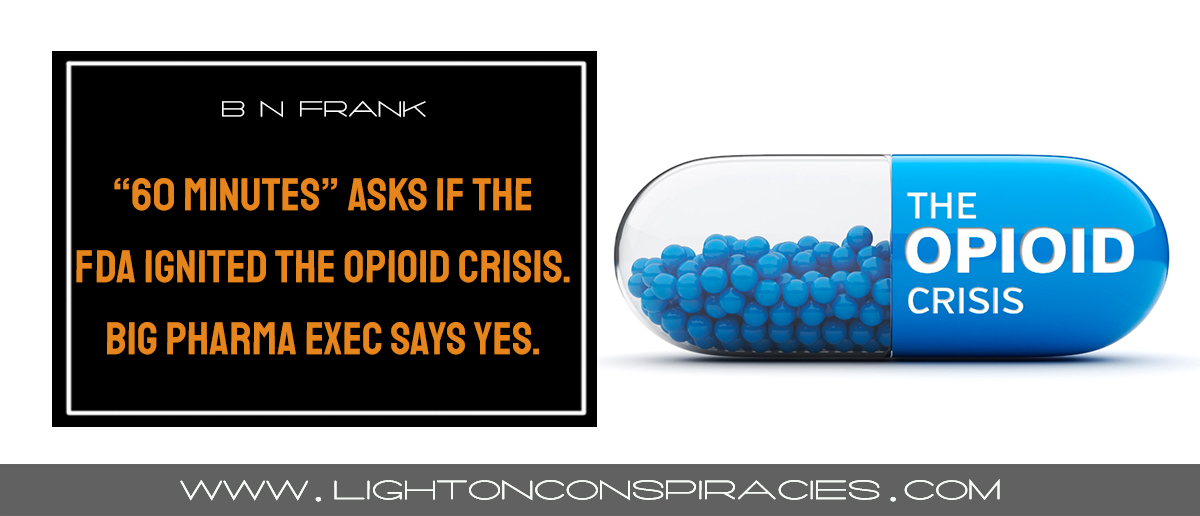 By B.N. Frank
By B.N. Frank
Over the years, experts have proved that the FDA has turned a blind eye to research and knowingly approved harmful products. Many of these harmful products – such as artificial sweeteners and fat substitutes – are still available to the public today and often without warning labels. Activist Post has also reported about their unethical behavior and decisions in relation to the Telecom Industry:
- Senator Blasts FCC, FDA, and Big Tech at Committee Hearing on Federal 5G Legislation and Installation
- Why Are Doctors Still Prescribing Hackable Medical Devices?
- The FDA Was Wrong About Opioids And SO MUCH MORE. Now They Say Don’t Worry About Cell Phone Radiation When Other Researchers Say We Should
- S. Research Reveals Cell Phone Radiation Causes Cancer. FDA Doesn’t Care
BOOK AD
Yolanda Yogapanda
by Ole Dammegard
Yolanda Yogapanda is a very smart and wise little panda bear. Together with her best friends, Toby Trunk and Leopold the stripy lion, she encounters various challenges in life – challenges Yolanda Yogapanda usually have great ways of solving. This is the first in a series of children’s books (age 5-95 years) based on the wisdom of ancient and timeless teachings of great yoga masters like Patanjali and Sri Swami Satchidananda.
It may not be possible to trust any of the FDA’s decisions after watching the most recent CBS’ 60 Minutes segment about how they “ignited” the Opioid Crisis.
We have reported on the causes and effects of the opioid epidemic for several years — interviewing government whistleblowers, doctors, and Americans who’ve grown dependent on the powerful pain pills. We have not had a high-ranking executive from the pharmaceutical industry sit before our cameras, until now. Tonight, Ed Thompson, a drug manufacturer who spent decades managing and producing opioids for Big Pharma, breaks ranks to denounce his industry and its federal regulator, the Food and Drug Administration, which he says opened the floodgates on the crisis with a few little changes to a label.
Ed Thompson: The root cause of this epidemic is the FDA’s illegal approval of opioids for the treatment of chronic pain.
Bill Whitaker: The FDA ignited this opioid crisis?
Ed Thompson: Without question, they start the fire.
Ed Thompson told us when the top selling opioid, Oxycontin, was first approved in 1995, it was based on science that only showed it safe and effective when used “short-term.” But in 2001, pressured by Big Pharma and pain sufferers, the FDA made a fateful decision and, with no new science to back it up, expanded the use of Oxycontin to just about anyone with chronic ailments like arthritis and back pain.
The FDA did it by simply changing a few words on the label, that lengthy insert no one ever reads. Today the label says the powerful pain pills are effective for “daily, around-the-clock, long-term… treatment.” And that small label change made a big change in the way drug companies would market all opioids, allowing them to sell more and more pills at higher and higher doses.
REPEAT: “The FDA did it by simply changing a few words on the label…”
Ed Thompson owns PMRS, a successful Pennsylvania pharmaceutical company that manufactures drugs for Big Pharma. It’s made him a rich man. But now he’s putting his livelihood at risk. He’s doing what no other drug maker has ever done, he’s suing the FDA in federal court to force it to follow the science and limit the opioid label to short term use.
Thompson is challenging the FDA to start with his newest opioid. It’s Thompson’s creative way to sabotage the system.
He may lose money rolling out his new drug, but if he is successful, it would set a precedent. Other manufacturers would be forced to change their labels and limit their marketing.Brandeis professor Dr. Andrew Kolodny is one of the country’s most-recognized addiction specialists and has been an expert witness in litigation against Big Pharma, including Purdue, the maker of Oxycontin. He has been trying to get the FDA label changed since 2011 to make clear opioids are not for everyone.
There were secret meetings between Purdue Pharma and the FDA starting in 2001.
“…at those secret meetings the FDA bowed to Purdue Pharma’s demands to ignore the lack of scientific data, and changed the label to, “around the clock…for an extended period of time.”
Ed Thompson: I can’t think of anything more harmful taking place that took place then. It opened the floodgates. It was the decision of no return for the FDA.
REPEAT: “It was the decision of no return for the FDA.”
Purdue told us Oxycontin always was approved for long-term use. But an internal document shows the company was jubilant about the labeling change. Quote: “The action by the FDA…has created enormous opportunities” to expand the market. The drug company’s ads soon extolled the virtues of Oxycontin’s effectiveness and sales tripled.
Tripled!
60 Minutes also interviewed former FDA commissioner David Kessler. He’s been retained by cities and counties suing Big Pharma for the Opioid Crisis.
Dr. David Kessler: There are no studies on the safety or efficacy of opioids for long-term use.
NO STUDIES ON SAFETY FOR LONG TERM USE!
Bill Whitaker: But there’s a law that says that a drug cannot be promoted as safe and effective unless it’s proven to be safe and effective. But yet, with FDA sanction, these opioids are being used in that way that you say have not been proven.
Dr. David Kessler: That’s correct. The rigorous kind of scientific evidence that the agency should be relying on is not there.
SCIENTIFIC EVIDENCE THE FDA SHOULD BE RELYING ON IS NOT THERE!
The label change was a blank check – one the drug industry cashed in for billions and billions of dollars. Now, Big Pharma had a green light to push opioids to tens of millions of new pain patients nationwide.
So has the FDA learned their lesson? Nope.
Bill Whitaker: Just a few weeks ago the FDA approved a new opioid that is 1,000 times more powerful than morphine. And this is in the middle of this opioid epidemic. How is that possible?
Dr. David Kessler: I don’t get it. I get your question; I don’t get the agency’s action.
Bill Whitaker: Isn’t the FDA supposed to be our watchdogs to protect us?
Yes – Bill. The FDA is supposed to be our watchdogs to protect us. So why are they still not being held accountable for the Opioid Crisis and all other decisions that have harmed and continue to harm Americans?












